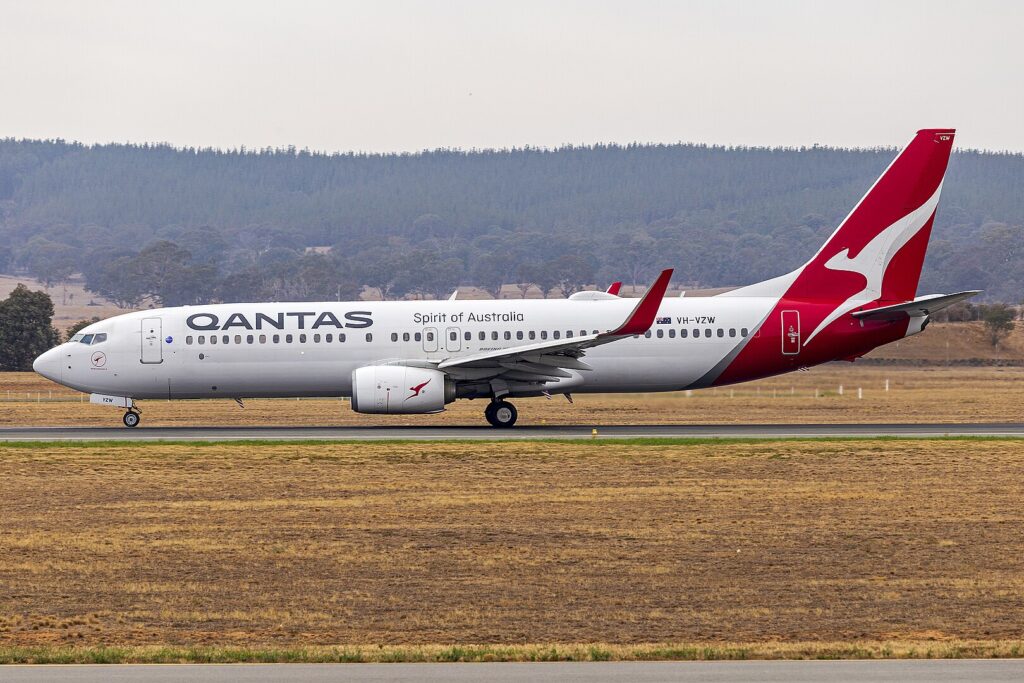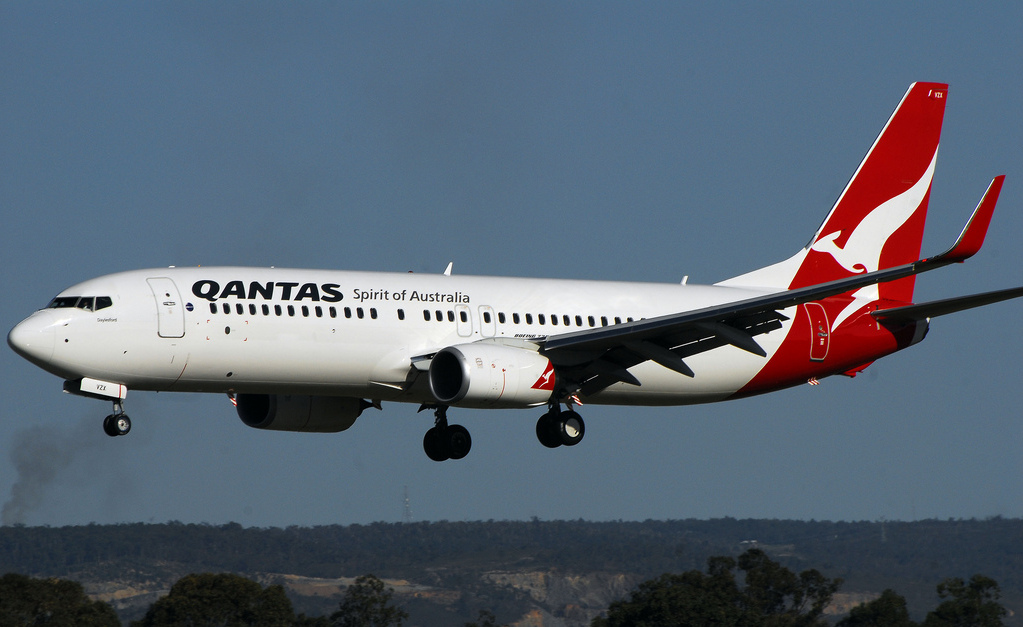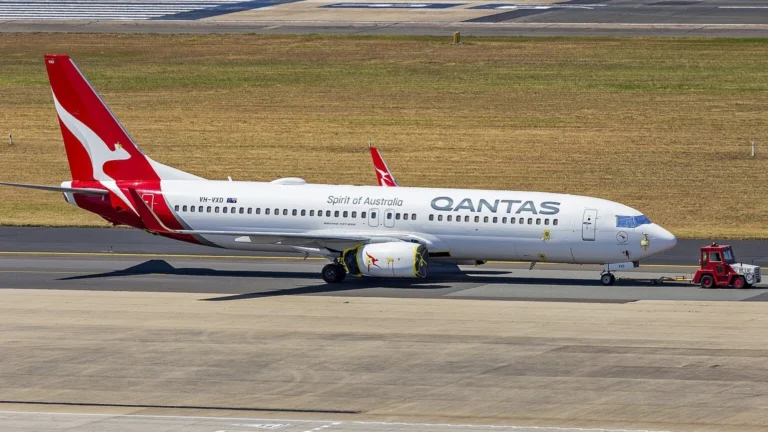SYDNEY- Last week, a 19-year-old Qantas (QF) Boeing 737 experienced engine failure during takeoff in Sydney, triggering a grassfire at Sydney Airport (SYD). Pilots safely landed the aircraft, and no injuries were reported among passengers, crew, or ground staff.
However, the incident has intensified concerns among Qantas pilots and engineers, who had warned of potential risks tied to aging engines.

Qantas Doesn’t have Spare Engines
Qantas engineers and pilots, speaking with Crikey, highlighted that the failed engine was close to its “life limit,” a factor that led to the immediate grounding of at least two other aircraft with similar engines. Currently, Qantas lacks spare engines to replace these aging units.
As a result, the airline is working urgently to repurpose engines from the damaged aircraft, originally scheduled for repair in Singapore. This move has disrupted flight operations, leading to more cancellations and delays, frustrating many passengers.
Data from FlightAware shows that, between 4 p.m. Friday and Saturday, 40% of all Qantas flights faced delays. The trend continued on Sunday, with 18 flight cancellations and delays affecting 21% of flights within 24 hours.
This engine failure marks the second serious incident involving a Qantas aircraft in the past week. In an earlier event not widely reported, an A330-200 flying from Melbourne (MEL) to Perth (PER) encountered a malfunction in a flight deck module controlling the landing gear.
The issue, which posed a risk of crash-landing, was eventually resolved, though it required extensive efforts. Crikey reported that former Qantas chair Richard Goyder was on board this flight.
Also Read Two-Month Missing Tool Found inside Qantas A380 Engine at Los Angeles

Mismanagement in Placing Timely Orders
The aging Qantas fleet is showing increasing signs of strain, stemming from former CEO Alan Joyce’s profit-driven decision to delay fleet renewal. This strategy has left the airline with an outdated fleet, minimal maintenance resources, and ongoing operational issues.
Engineers and pilots, who have long warned of this outcome, report that Qantas continues to follow Joyce’s approach, including cuts in maintenance staff and reduced inventory.
Major maintenance tasks are now outsourced, with engine reconditioning primarily done overseas, including in China. “We have no spare engines,” an engineer told Crikey, explaining that engines must be taken from grounded aircraft.
One such aircraft has a cracked “pickle fork” fitting—a critical structural component—awaiting a ferry permit to Singapore for repairs. Engineers note that these cracks occur in high-cycle airframes but can no longer be repaired domestically.
Further signs of wear are visible across the fleet. About half of Qantas’ aging Fokker aircraft used in Western Australia are in such poor condition that several are grounded daily for repairs.
On October 21, a Fokker flying from Perth to Paraburdoo experienced mechanical issues, alarming passengers and crew. This incident forced Qantas to reinstate a Boeing 717 that had been recently retired.
A Network Aviation pilot, a Qantas subsidiary, described the situation as “shocking,” citing frequent groundings and breakdowns.
Stay tuned with us. Further, follow us on social media for the latest updates.
Join us on Telegram Group for the Latest Aviation Updates. Subsequently, follow us on Google News

